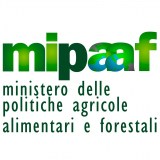
Quartirolo Lombardo has been part of the history of Lombardy since the 10th century. At that time, the Lombard herdsmen returning to the cattle sheds on the plain, after spending the summer in mountain pastures, used to graze their cows on the fresh grass that grew after the third cutting, known as “quartirola” grass. It is this last grass before winter that gives Quartirolo Lombardo its name and unique aroma.
The tradition has remained unchanged over the centuries. The “secret” has been preserved and handed down to the present day, providing a soft cheese identical to the one that graced the tables of our ancestors.
Today, thanks to the development of cheese-making techniques, the production of Quartirolo Lombardo is no longer seasonal but continues throughout the year, allowing it to be enjoyed it at any time, in combination with the abundant variety of seasonal flavors. Quartirolo was recognized by the European Community and registered in the list of PDO products in 1993.
The product
Quartirolo Lombardo is a truly unique soft table cheese. It comes in square slabs, with flat faces of 18-22 cm in width, and ranges in weight from 1.5 to 3.5 kg. The PDO marking is stamped on one the flat faces of the Quartirolo Lombardo.When fresh, it has a thin, pinkish-white rind, which, with ageing, becomes reddish grey. Its white, lumpy paste becomes firm when aged and its distinctive flavour, slightly sour when young, becomes aromatic when mature.
The production area extends throughout Lombardy and includes the provinces of Bergamo, Brescia, Como, Cremona, Lodi, Milan, Pavia, Lecco and Varese. Due to its history and its unique features, this cheese has become a symbol of the area in which it is produced.
Quartirolo is made from cow’s milk taken from at least two milkings, and that from the second or successive milkings can also be partially creamed. The curd is broken up in two stages, separated and regulated by the development of the acid whey, into lumps the size of hazelnuts. The curd mass, mixed with whey, is placed in moulds and then heated to 26-28 degrees for between 4 and 24 hours.
The cheese is then salted, either with dry salt or by immersion in a brine solution.The soft variety is ripened from 5 to 30 days. Beyond 30 days, it is marketed under the description mature.
Interesting facts
In around the tenth century, when Quartirolo Lombardo first appeared, it was known as Stracchino, since it was made from milk produced during seasonal migration or while travelling to pasture, when the cows were very tired, or “stracche”, in the local dialect.In those days, Quartirolo was aged exclusively in natural caves, with a very favourable micro-climate for the maturing process.
By Consorzio per la Tutela del Quartirolo Lombardo with MiPAAF



